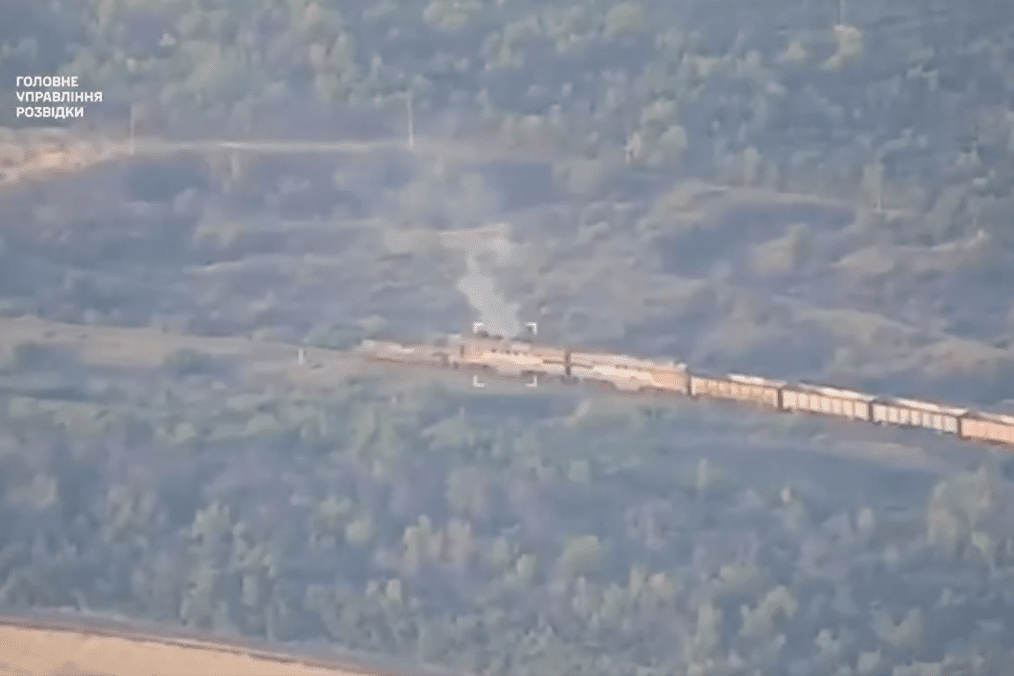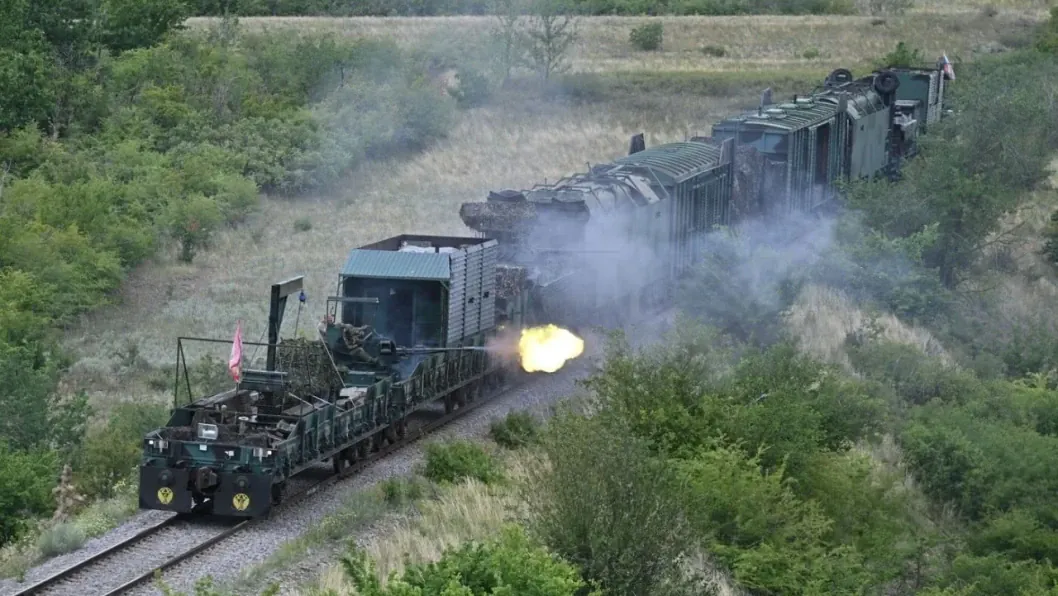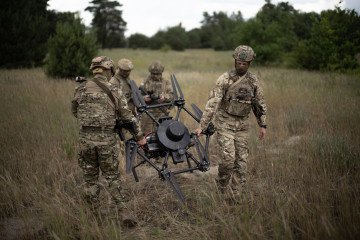- Category
- Latest news
Russian Military Rail Line in Zaporizhzhia Blown Up—Twice—in Partisan Sabotage Campaign

Ukrainian resistance fighters, in coordination with the Defense Intelligence of Ukraine (HUR), have struck a major blow to Russian military logistics in the temporarily occupied Zaporizhzhia region.
According to HUR, a railway line used by Russian forces to move military cargo was destroyed by an explosion on June 26, paralyzing traffic for over a week.
🚂 Ukrainian partisans and military intelligence hit Russian logistics again in occupied Zaporizhzhia.
— Ivan Khomenko (@KhomenkoIv60065) July 1, 2025
💥 First blast on June 26 disabled a key rail line.
🔥 On July 1, another explosion took out a Russian military train.
One of the Russia’s main supply routes is paralyzed. pic.twitter.com/1JakHhMGpv
Despite Russian efforts to restore the damaged section and resume transport on July 1, Ukrainian partisans struck again—disabling a Russian locomotive shortly after it entered the repaired segment.
The attack has once again blocked one of the key supply routes for Russian forces in the region.
Ukraine’s Defense Intelligence confirmed the operation, highlighting ongoing resistance activity across occupied territories.

Earlier, on June 22, Ukrainian drones struck a Russian military freight train carrying fuel in the temporarily occupied Zaporizhzhia region.
According to the HUR, the operation targeted a section of the railway between Levadne and Molochansk, disabling the locomotive and igniting at least 11 fuel tank cars.
Aerial footage captured by HUR shows flames and thick black smoke billowing from the site, with smoke visible up to 20 kilometers away.
The attack was carried out by Ukraine’s special unit “Kabul 9,” in coordination with OSUV “Khortytsia,” SBU’s Alpha group, and the “Next” detachment of the State Special Communications Service.
The drones first deployed loitering munitions to disable the engine, followed by precision strikes on the fuel cisterns. As a result, the railway infrastructure was severely damaged. Petro Andriushchenko, head of the Center for Occupation Studies, confirmed that the rail line would remain out of service for several weeks.



-c439b7bd9030ecf9d5a4287dc361ba31.jpg)

-111f0e5095e02c02446ffed57bfb0ab1.jpeg)

